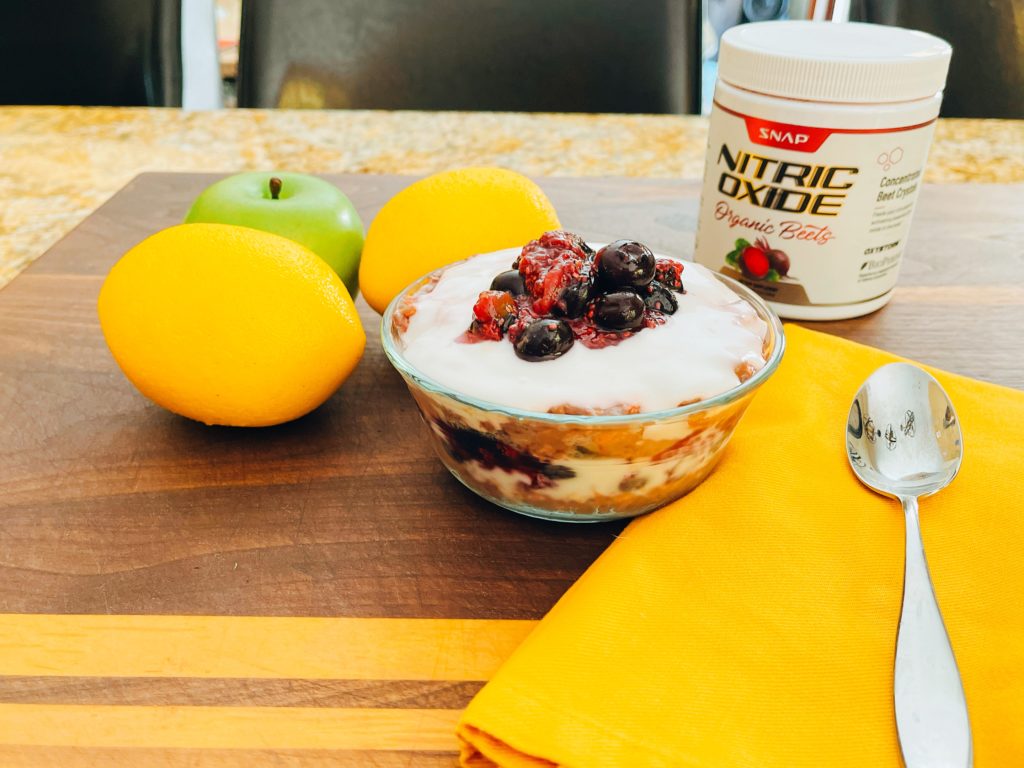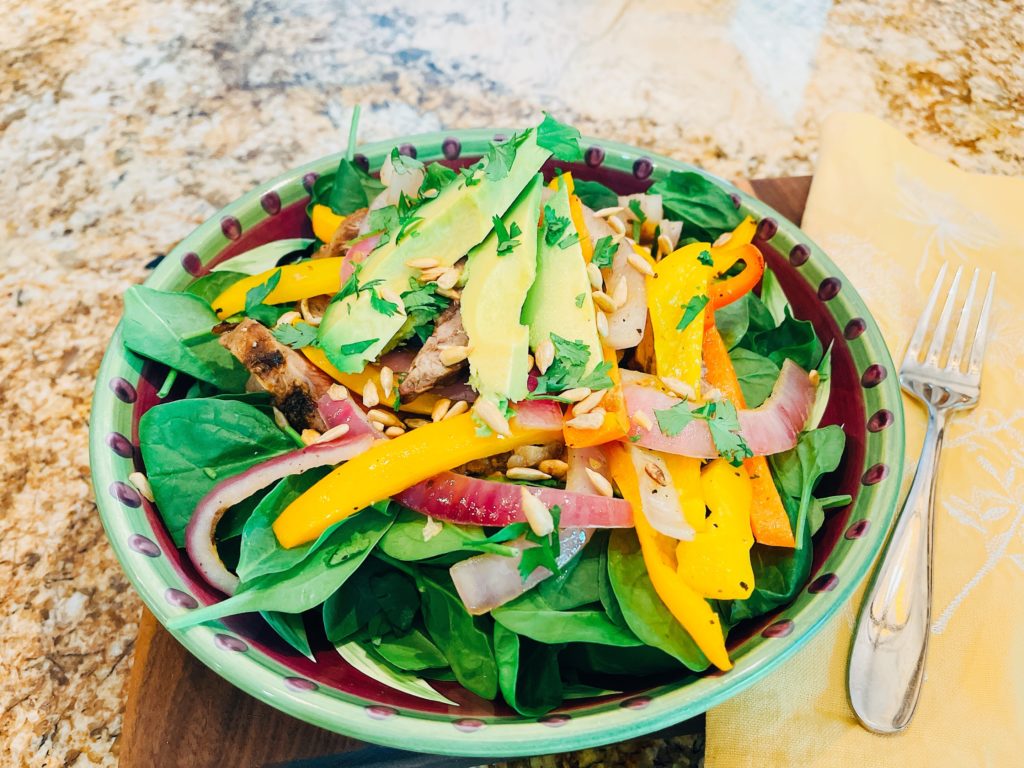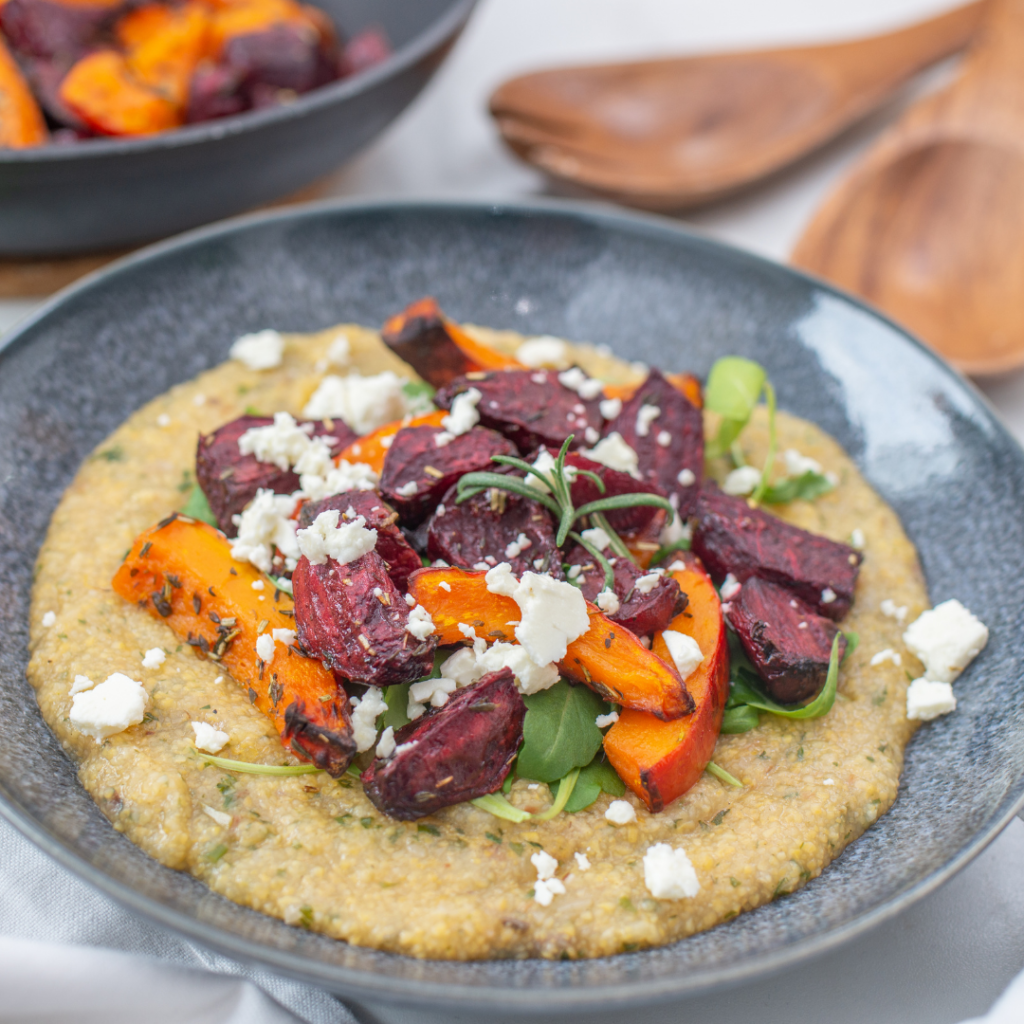We all know how important our heart health is. Yet so many of us fail to give it the love and support it really needs. When it comes to taking care of your overall health one of the four most important organs to focus on is your heart. Think about it, your heart is always working for you and never gets to take a day off. This powerhouse of an organ takes a beating of epic proportions throughout our daily routines. Yet, we rarely take the time or energy to repair and support our hearts. Not to mention the foods we naturally gravitate towards can have long-term damaging effects on our heart health. Our nutritional shortcomings coupled with our excessive stress levels are a recipe for disaster.
Give Your Heart Some Love
Did you know that there are certain colored foods that are better equipped to support your heart health? For example, foods that are red or green are chock full of heart-healthy nutrients. These foods tend to be higher in anti-inflammatory and antioxidant properties. When it comes to supporting your overall health when you focus on your heart you are also supporting the rest of your body. This means if you treat your heart like the king that it is your whole body will reap the rewards. The following are 10 things you can add to your daily routine to support your heart health.

Olive Leaf Extract
Traditionally used for the prevention or treatment of inflammation, infections (e.g., the common cold, influenza, Candidiasis, urinary tract infections, shingles), diarrhea, allergies, and diseases such as Alzheimer’s, chronic fatigue syndrome, osteoarthritis, and osteoporosis. Research shows oleuropein, the main component in olive leaf extract, has antioxidant, antibacterial, antimicrobial, anti-inflammatory, and immune-stimulating properties. As such olive leaf extract may also aid in the following improved digestive function, the protection of the central nervous system, lowering blood pressure, improving skin texture and color, and reducing the risk of cardiovascular diseases.
Hibiscus Flowers
Did you know that historically teas and tinctures were used to aid with a variety of ailments? When it comes to Hibiscus flowers they were often found in teas and tinctures to promote weight loss and support heart health. Sipping on hibiscus tea can work wonders when it comes to cutting down on your cholesterol levels. Research showed that the 90 participants with high cholesterol who sipped hibiscus twice a day for 15 days had an increase in their HDL cholesterol levels. While LDL cholesterol and triglycerides are known as bad kinds, HDL is the good kind. Hibiscus tea is considered to be a contender in helping with body fat, the info collected shows that sipping hibiscus tea for 3 months helped people to lower their body weight and cut down on abdominal fat.

Beets
The leaves and roots of beets are packed with nutrition, including antioxidants that fight cell damage and reduce the risk of heart disease. They’re one of the few vegetables that contain betalains, a powerful antioxidant that gives beets their vibrant color. Betalains reduce inflammation and may help protect against cancer and other diseases. Beetroot and its juice help your heart and lungs work better during exercise. Nitric oxide from beets increases blood flow to your muscles. Rich in folate (vitamin B9) which helps cells grow and function. Beets are naturally high in nitrates, which are turned into nitric oxide in the body. This compound lowers blood pressure by causing the blood vessels to relax and widen.
Garlic
Containing phytochemicals such as allicin and organosulfur compounds. These phytochemicals (or plant compounds) are responsible for the plant’s heart-healthy, immune-supportive, anti-inflammatory, and nutritional properties. Garlic stimulates the synthesis of nitric oxide, which dilates blood vessels, and inhibits ACE (angiotensin-converting enzyme) activity which can potentially support healthy blood flow and pressure. Scientists believe that chronic inflammation is a driver behind chronic diseases, including heart disease, diabetes, cancer, and arthritis. Garlic, on the other hand, helps inhibit the activity of certain inflammatory proteins.

Pomegranate
The antioxidants in pomegranate juice can help remove free radicals, protect cells from damage, and reduce inflammation. Pomegranate juice can reduce inflammation in the gut and improve digestion. It may be beneficial for people with Crohn’s disease, ulcerative colitis, and other inflammatory bowel diseases. It can help reduce inflammation throughout the body and prevent oxidative stress and damage. Flavonols in pomegranate juice may help block the inflammation that contributes to osteoarthritis and cartilage damage. Studies have shown that the juice improves blood flow and keeps the arteries from becoming stiff and thick. It may also slow the growth of plaque and buildup of cholesterol in the arteries. Pomegranates are also great for promoting memory and improving fertility.
Green Coffee Bean
Studies have shown that green coffee has a number of potential health benefits. These include reduced blood pressure, increased weight loss, and improved skin. Chlorogenic acid stimulates weight loss by increasing levels of a hormone called adiponectin. Adiponectin helps your body burn fat and boosts your metabolism. It also reduces blood glucose and lipids, which may lower your risk of getting diabetes and heart disease. Green coffee has been shown to significantly decrease blood pressure in both hypertensive rats and humans. It also reduces levels of the stress hormone cortisol, which is known to increase blood pressure and cause other problems like weight gain.

Turmeric
One of turmeric’s main benefits is its anti-inflammatory properties, and the bulk of turmeric’s inflammation-fighting powers can be credited to curcumin. In fact, curcumin may be a more effective anti-inflammatory treatment than common inflammation-fighting medications. Study shows that curcumin may improve endothelial function or the health of the thin membrane that covers the inside of the heart and blood vessels. Curcumin in particular is able to scavenge different types of free radicals, control enzymes that neutralize free radicals, and prevent certain enzymes from creating specific free radical types. Turmeric comes with a variety of health benefits, however, due to its reduced absorption rate alone it needs to be paired with black pepper to truly be beneficial to your health. Once paired with black pepper the absorption rate becomes more than 200% compared to turmeric alone.
Black Pepper
Not just a flavor enhancer, black pepper offers health benefits thanks to its bioactive compounds, with piperine being the most important. Piperine is a natural alkaloid that gives black pepper its pungent taste. It is also the main component that gives black pepper its health-boosting qualities. Piperine is considered a type of antioxidant that helps to lower the risk of chronic illnesses like atherosclerosis, cardiovascular disease, and neurological conditions. When you add black pepper to your meal, you increase the number of nutrients absorbed into your bloodstream. This is due to its ability to stimulate hydrochloric acid in your stomach so you can better digest and absorb the foods you eat. Black pepper has also been shown to aid digestion, stimulate your immune system, and reduce your risk of heart disease.

Hawthorn Berry
This ancient medicinal herb, which is widely available in many forms as a dietary supplement, is still popular for its effects on heart health. The leaves, flowers, and berries of hawthorn contain an abundance of phytonutrients (antioxidants) called oligomeric proanthocyanidins and flavonoids, which are thought to be responsible for its pharmacologic effect. Hawthorn benefits the heart by causing a dilation of the smooth muscle that lines the coronary arteries, thereby increasing blood flow to the heart. It has been shown to help reduce stress and anxiety levels. Hawthorn’s ability to help promote circulation and lower blood pressure makes it an ideal candidate for promoting and supporting heart health.
Coenzyme Q10
An antioxidant that your body naturally produces, coenzyme Q10 is used for the growth and maintenance of cells. As we age it becomes harder for our bodies to produce coenzyme Q10 which can leave us vulnerable to a number of health-related risks. Coenzyme Q10 has also been shown to be beneficial for increasing energy levels, slowing the signs of aging, promoting brain health and function, and improving insulin sensitivity and regulation. It is required for ATP production, which is why it has been shown to be effective at promoting energy levels. Coenzyme Q10 has also been shown to promote heart and lung health due to its high levels of antioxidants.
Conclusion
Your heart health matters and it doesn’t have to be some complex operation when it comes to giving it the support and love it deserves. If you want to ensure that you are doing everything within your power to give your heart the care it needs follow these simple steps. Eat an anti-inflammatory diet, just focus on fresh whole foods and make sure you are getting red and green foods into the mix. Exercise daily for at least 30 minutes (it doesn’t have to be a lot a walk will do). Stay hydrated! Your body is made up of mostly water and you need water to function properly. Lower your stress as much as possible. Get 7-8 hours of sleep a night and choose your supplements wisely! Make sure you talk to your primary doctor prior to adding any supplements into your daily routine.

Chocolate Chip Oats With a Blueberry Chia Jam
Gluten-Free Vegan Serves 1
- 1/2 Cup Gluten-Free Oats
- 1 TBsp Chia Seeds
- 1/2 Cup Coconut Milk
- 1 tsp Cacao Powder
- 1/2 Scoop Snap Beets Powder
- 1 TBsp Vegan Chocolate Chips
Blueberry Chia Jam
- 1/4 Cup Frozen Blueberries
- 1/2 TBsp Lemon Juice
- 1 TBsp Chia Seeds
Directions:
Into a mason jar combine oats, 1 TBsp chia seeds, and milk. Once base ingredients are mixed well add in and combine the remaining ingredients aside from jam components. Place the jar into the refrigerator overnight. In a microwave-safe container heat the frozen fruit and juice for 1-minute stirring halfway through. Remove from heat and stir in the remaining chia seeds once mixed place into the fridge to set. When ready to eat take out oats and top with chia jam. I like to add in a little more coconut milk and even coconut whipped cream on top. Enjoy!

Fajita Salad
Gluten-Free Dairy-Free Serves 4
- 6 Cups Spinach
- 4 Cups Arugula
- 1 Medium Red Onion
- 4 Bell Peppers
- 1 Pound Skirt Steak (or Marinated Portobello Mushrooms)
- 3 Avocados
- 2 Cloves Garlic
- 1 Cup Cilantro
- 1/4 Cup Pumpkin Seeds Toasted
- 1 Lime Juiced
- Salt and Pepper to Taste
- 1 Cup Avocado Oil
Directions:
Cook onions and one clove of garlic. Add in meat (or mushrooms) once onions and garlic become fragrant. After 3-5 minutes add in the bell peppers until everything is cooked through. For the salad dressing combine 1 avocado, avocado oil, 1/2 cup cilantro, 1 garlic clove, lime juice, and salt. Blend dressing until desired texture is reached. To assemble salad place a mixture of greens into each bowl. Add in fajita vegetable mixture and top with chopped cilantro, pumpkin seeds, and dressing.

Pumpkin Polenta With Roasted Vegetables
Gluten-Free, Vegan Serves 4
Vegetable ingredients:
- 3 Medium Beets Cubed
- 4 Medium Carrots Cubed
- 1/4 Cup Olive Oil
- 3 Tbsp Balsamic Vinegar
- 1 Tbsp Agave Syrup
- 1/2 tsp Sea Salt
- 1/4 tsp Black Pepper
Polenta Ingredients:
- 3 Tbsp Olive Oil
- 2 Garlic Cloves Minced
- 3 Medium Shallots Minced
- 4 Cups Low-Sodium Vegetable Broth
- 1 Cup Polenta
- 1/4 tsp Thyme
- 1 Cup Pumpkin Puree
- 1/4 tsp Sage
- 1/2 tsp Paprika
- Sea Salt and Pepper to Taste
Directions:
Preheat the oven to 425 degrees F. Treat the baking sheet with the non-stick option of choice. In a large bowl, toss all of the vegetable ingredients together. Making sure that all the vegetables have been evenly coated. Place vegetables onto a baking sheet and roast for 15 minutes and flip the vegetables before roasting another 15 minutes or until tender. Once done set aside until ready to serve.
Heat a large skillet over low heat. Add oil, shallots, and garlic cooking for 2 minutes or until they begin to sweat. Lower heat to medium and add broth. Bring to a simmer adding in polenta 1/3 at a time stirring continuously to avoid clumps. Reduce heat to a simmer and cook uncovered for 20 minutes until polenta is soft. Lower heat to low and add in the pumpkin, sage, thyme, paprika, salt, and pepper. Continue to cook while stirring for another 5 minutes. To serve pour the polenta into dishes and top with roasted vegetables and vegan feta if desired.

Need A Hand?
A happy and healthy life is closer than you may think. We all have to deal with our health daily, and when we don’t feel our best, it shows. If you are tired of just making it through your day, you NEED to start investing in your health today! You are not alone on this journey. If you ever need any help, I am always here to do just that. Even if it is something as small as acting as a sounding board, do you have any questions or concerns I can help you with? Feel free to contact me directly at [email protected], or you can even book a one-on-one call with me. Be sure to subscribe to gain access to tons of free goodies and check back daily for more great recipes and information!

